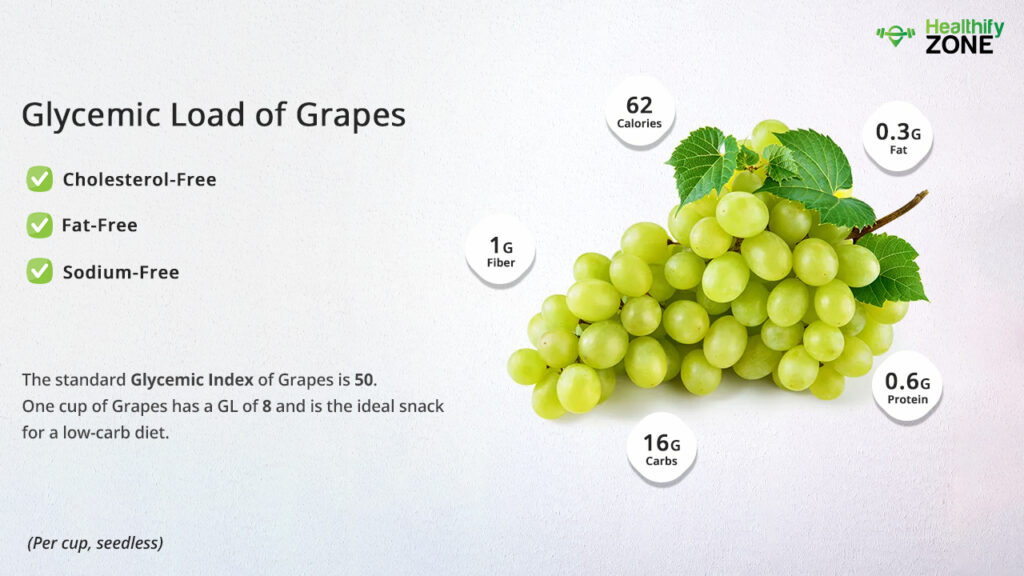Grapes have a low glycemic index and are strong in fiber due to their skin content. They have a GI of 53 and are a great source of vitamin B-6, which is vital for maintaining mood stability and brain function. Potassium, a mineral that assists your body balance fluids, is found in abundance in grapes. Your risk of stroke and heart disease can be reduced by potassium, which can also help control excessive blood pressure. The majority of individuals don’t get enough of this nutrient; therefore, grapes can help make up the difference.
Is Grapes Safe for Diabetes?
Diabetes patients need to be cautious about their fruit intake. Fruit, however, is a nutritious and important component of a diet for managing diabetes. Controlling one’s portion is crucial while eating any fruit. Grapes are a beloved fruit that is healthy and safe for diabetes. Since they don’t hurt or cause a surge in glucose levels, people can eat them and include them in their diabetic diets.
The risk of acquiring type 2 diabetes is lowered by eating grapes. Due to their fiber content, grapes provide a satisfying snack option. Overall, talking to a doctor or nutritionist can help someone create an eating plan that includes fruit to suit their individual needs.
Are Grapes Suitable for Weight Loss?
Since grapes are almost fat-free and low in calories, including them in your diet can help your weight loss plan go more quickly. They offer a tiny amount of satiating fiber along with resveratrol, a potent antioxidant that may help with weight loss. They are a natural source of both compounds. You may effortlessly avoid fried and high-calorie junk food by simply including grapes in your weight loss diet. They are also really tasty, which is a bonus.

What is the Best time to Consume Grapes?
Grapes are the only fruit known to possess the sleep-regulating hormone melatonin; thus, incorporating them into your diet on a regular basis can assist increase the body’s natural sleep-wake cycle. You’ll then be able to fall asleep more quickly each night as a result.
The Bottom Line: The Glycemic Index of Grapes is 53
Potassium, a mineral that assists your body balance fluids, is found in abundance in grapes. Your risk of stroke and heart disease can be reduced by potassium, which can also help control excessive blood pressure. The majority of individuals don’t get enough of this nutrient; therefore, grapes can help make up the difference. Vitamin E, which is abundant in grape seeds and helps to keep your skin supple and hydrated. Other elements in grapes may lessen your risk of developing acne and promote better hair by boosting blood flow to your scalp. Grapes are quite high in water, which can make your digestive system more efficient. Insoluble fiber, which can result in softer stools, is also abundant in grapes.